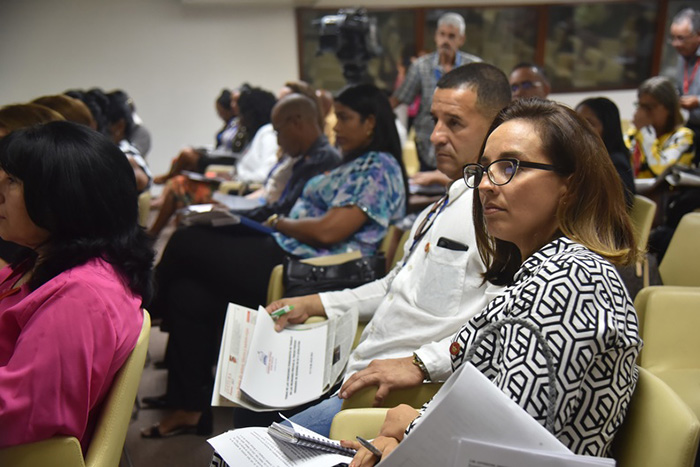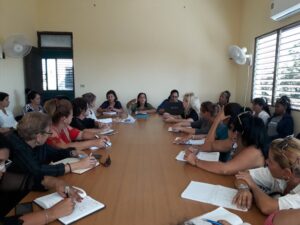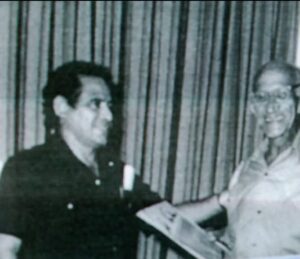As a prelude to the Third Ordinary Period of Sessions of the X Legislature of the National Assembly of People’s Power (ANPP), today was the first day of debates of the 11 Permanent Working Commissions of that body, on topics such as the economy, services, the fight against crime and feeding the people.
At the Havana Convention Palace, Miguel Díaz-Canel, First Secretary of the Central Committee of the Communist Party of Cuba (PCC) and President of the Republic, attended the debates of the Economic Affairs Commission, accompanied by members of the Political Bureau Esteban Lazo Hernández, president of the ANPP; and Ulises Guilarte de Nacimiento, secretary general of the Cuban Workers’ Central.
Read also: Cuban President in debates of the Economic Affairs Committee
The deputies of the Economic Affairs Committee were given extensive information on the fulfilment of the Plan for the Economy in the first half of 2024 and projections for the second half, by Joaquín Alonso Vázquez, Minister of Economy and Planning.
Salvador Valdés Mesa, member of the Political Bureau and Vice-President of the Republic, accompanied the debates of the Agri-Food Commission, where Alberto López Díaz, Minister of the Food Industry, presented the report of the highest audit of the Ministry he heads.
Ramón Aguilar Betancourt, president of the Agri-Food Commission, presented an analysis of 10 companies classified as export poles, while Ydael Pérez Brito, head of Agriculture, addressed the behaviour of the X/37 agreement of the ANPP referring to the business system and its economic development at the end of June of this year.
The representatives of the ministries involved and the Azcuba Sugar Group addressed the treatment of the previous processes of accountability and the delegates’ dispatches to their constituents.
Manuel Marrero Cruz, member of the Political Bureau of the PCC and Prime Minister of the Republic, accompanied the Commission of Attention to Services, where the complex economic scenario through which the country is passing and the main challenges of the Ministry of Domestic Trade to guarantee its social purpose were analysed.
As part of the Commission of Attention to Services, other problems were analysed on Monday, among them, the work of the Tourism and Communications sectors.
The Commission for the Attention to Services in Parliament agreed to design a training system for the preparation of personnel on their contents and responsibilities in the policy for children, adolescents and youth.
The Standing Working Commissions on Children, Youth and Equal Rights for Women and Education, Culture, Science, Technology and Environment evaluated the results of the testing and implementation of this policy, in the presence of Jorge Luis Perdomo Di-Lella, Deputy Prime Minister of the Republic.
The application and popular assimilation of the new legal institutions established as a result of the Family Code was the focus of attention of the ANPP deputies gathered in the Permanent Working Committee on Legal and Constitutional Affairs.
Yamila Peña Ojeda, Prosecutor General of the Republic, went into the changes and adaptations of the organism for the correct implementation of the legal body, which meant a substantial increase in the number of cases in which the participation of the prosecutor is required.
With more than 80 percent of the sentences passed during the first half of the year, Cuba has a high level of judicial resolution, although it is still not enough, said Rubén Remigio Ferro, president of the Supreme People’s Tribunal (TSP), at the meeting of the Permanent Working Commission of the ANPP.
José Luis Toledo Santander, president of the commission, insisted on the need to prioritise administrative processes due to the conflicts and inconvenience they generate among the population when the response is delayed.




